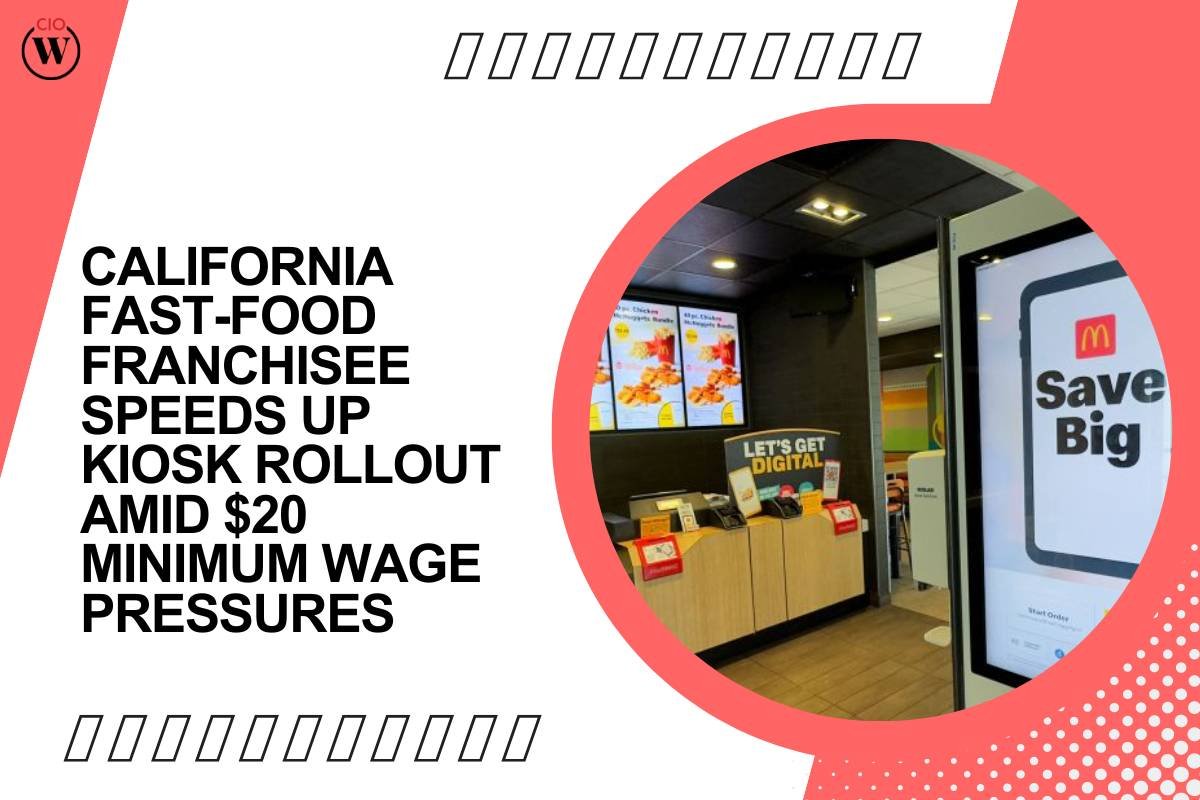Source – CNN
In response to California $20 minimum wage for fast-food workers, a prominent franchisee is expediting the deployment of digital order kiosks across its chain. Harsh Ghai, owner of 180 fast-food establishments in California, including Burger King, Taco Bell, and Popeyes locations, disclosed plans to swiftly introduce kiosks in all restaurants. Ghai, purportedly the largest Burger King franchisee on the West Coast, expressed urgency, stating, “We can’t move fast enough on this.”
Despite already having kiosks in 25% of his restaurants, Ghai aims to equip the remaining 75% within the next 30 to 60 days. This push reflects a strategic move to streamline operations and mitigate the impact of heightened labor costs imposed by the recent wage legislation.
Financial Challenges and Adaptation
The implementation of the California $20 minimum wage, effective from April 1, poses significant financial challenges for fast-food operators. Ghai highlighted the dilemma faced by franchisees, emphasizing the difficulty in maintaining profitability amidst escalating labor expenses. With conventional methods like price hikes proving insufficient to offset costs, Ghai ruled out further increases to avoid potential declines in customer traffic.
To navigate the wage increase, Ghai outlined a series of measures, including reducing work hours, eliminating overtime, halting new restaurant development, and accelerating the integration of kiosk technology. These adjustments underscore the industry’s quest for innovative solutions to enhance efficiency and sustain viability in a changing economic landscape.
Embracing Technological Solutions
The adoption of digital order kiosks emerges as a pivotal strategy for fast-food chains grappling with rising labor costs. Beyond addressing wage pressures, kiosks offer benefits such as enhanced accuracy and increased customer spending. Shake Shack attested to the profitability of kiosks, labeling them as their most lucrative channel, while Burger King and Taco Bell accelerated their nationwide rollout.
Ghai emphasized the accelerated deployment of kiosks across all restaurants in response to legislative mandates. Previously slated for gradual implementation over five to ten years, the urgency spurred by the new wage legislation prompted a swifter approach. Ghai justified the investment in technology as a prudent financial decision, citing economies of scale and long-term cost efficiencies associated with widespread adoption.
The swift rollout of digital order kiosks underscores the fast-food industry’s adaptation to regulatory changes and economic pressures. As operators navigate the complexities of California $20 minimum wage legislation, technological innovation emerges as a crucial tool in maintaining competitiveness and sustainability in the evolving market landscape.









